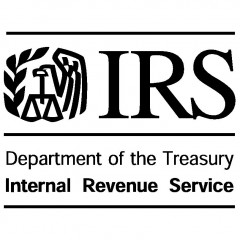Tax Center to Assist Unemployed Taxpayers
IRS Tax Center to Assist Unemployed Taxpayers The “What Ifs” of an Economic Downturn The Internal Revenue Service recognizes that many people may be having difficult times financially. There can be a tax impact to events such as job loss, debt forgiveness or tapping a retirement fund. If your income decreased, you may be newly eligible for certain tax credits, such as the Earned Income Tax Credit. Publications to assist unemployed taxpayers Publication 4128 , Tax Impact of Job Loss Publication 4128(SP), Tax Impact of Job Loss (Spanish version) Publication 4763, Job Related Questions During an Economic Downturn Publication 4763(SP), Job Related Questions During an Economic Downturn (Spanish version) Assistance with filing and paying taxes If you have troubles paying your tax bill, contact the IRS immediately. There are steps we can take to help ease the burden. You should file a tax return even if you are unable to pay so you can avoid additional penalties. Free Tax Help Publication 1546, The Taxpayer Advocate Service at the IRS – How to Get Help with Unresolved Tax Problems Payment Plans, Installment Agreements Offers in Compromise IRS Help for Financially Distressed Taxpayers Starting your own business Some taxpayers may see unemployment as an opportunity to start their own businesses. Starting a Business Self-Employed Individuals Tax Center Small Business Tax Workshops Learn the basics by taking a free Virtual Small Business Tax Workshop. Business.gov Business.gov guides you through the maze of government rules and regulations and provides access to services and resources to help you start, grow, and succeed in business. Health insurance COBRA Health Insurance Workers who lose their jobs may qualify for a 65% reduction in health insurance premiums for up to 15 months. Health Coverage Tax Credit – Trade-affected workers and PBGC payees receive an 80% credit for health insurance premiums. Other Resources Publication 908, Bankruptcy Tax Guide Canceled Debt – Is it Taxable or Not? Publication 4705, Overview: Mortgage Debt Forgiveness Publication 4705(SP), Overview: Mortgage Debt Forgiveness (Spanish version) Bartering Income Bartering for goods or services? Know the...
IRS to Start Processing Delayed Returns on Feb. 14
Additional IRS Information IR-2011-7, Jan. 20, 2011 WASHINGTON — The Internal Revenue Service plans a Feb. 14 start date for processing tax returns delayed by last month’s tax law changes. The IRS reminded taxpayers affected by the delay they can begin preparing their tax returns immediately because many software providers are ready now to accept these returns. Beginning Feb. 14, the IRS will start processing both paper and e-filed returns claiming itemized deductions on Schedule A, the higher education tuition and fees deduction on Form 8917 and the educator expenses deduction. Based on filings last year, about nine million tax returns claimed any of these deductions on returns received by the IRS before Feb. 14. People using e-file for these delayed forms can get a head start because many major software providers have announced they will accept these impacted returns immediately. The software providers will hold onto the returns and then electronically submit them after the IRS systems open on Feb. 14 for the delayed forms. Taxpayers using commercial software can check with their providers for specific instructions. Those who use a paid tax preparer should check with their preparer, who also may be holding returns until the updates are complete. Most other returns, including those claiming the Earned Income Tax Credit (EITC), education tax credits, child tax credit and other popular tax breaks, can be filed as normal, immediately. The IRS needed the extra time to update its systems to accommodate the tax law changes without disrupting other operations tied to the filing season. The delay followed the Dec. 17 enactment of the Tax Relief, Unemployment Insurance Reauthorization, and Job Creation Act of 2010, which extended a number of expiring provisions including the state and local sales tax deduction, higher education tuition and fees deduction and educator expenses...






